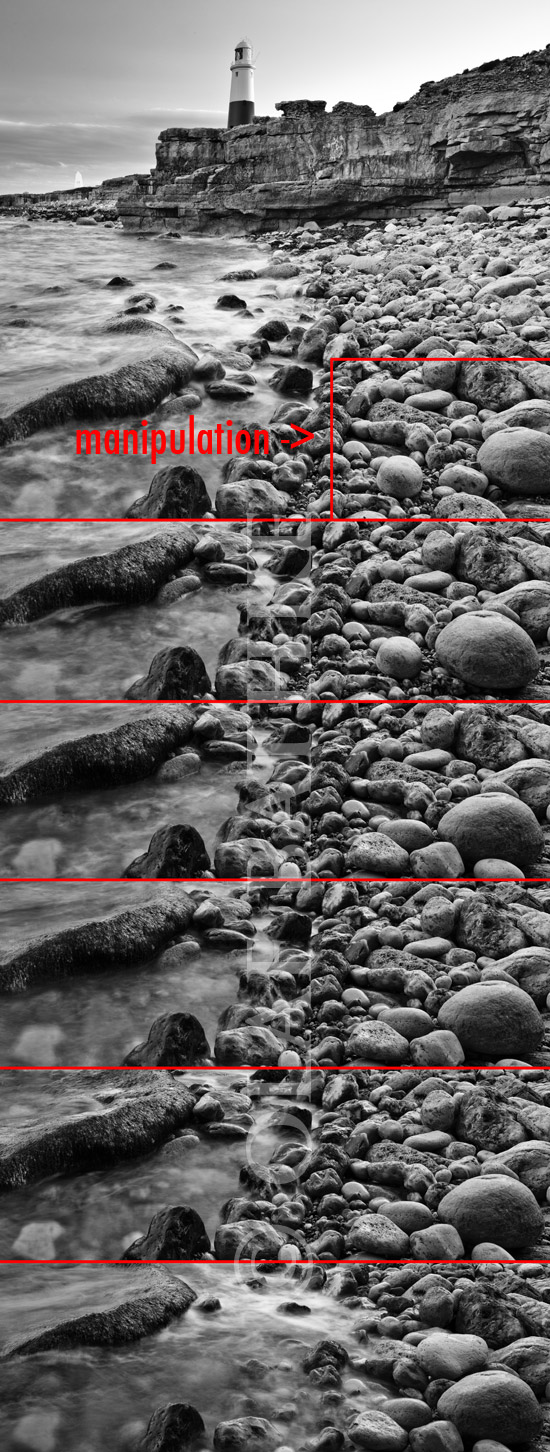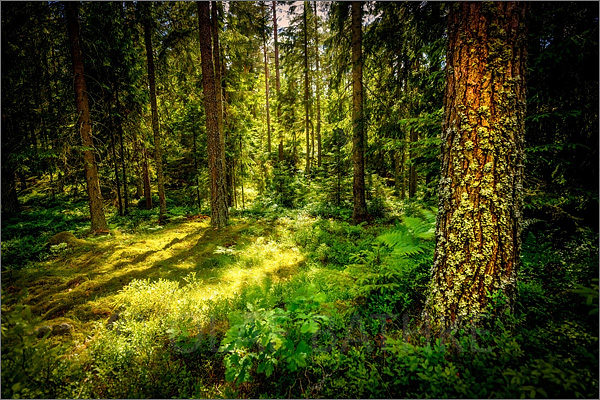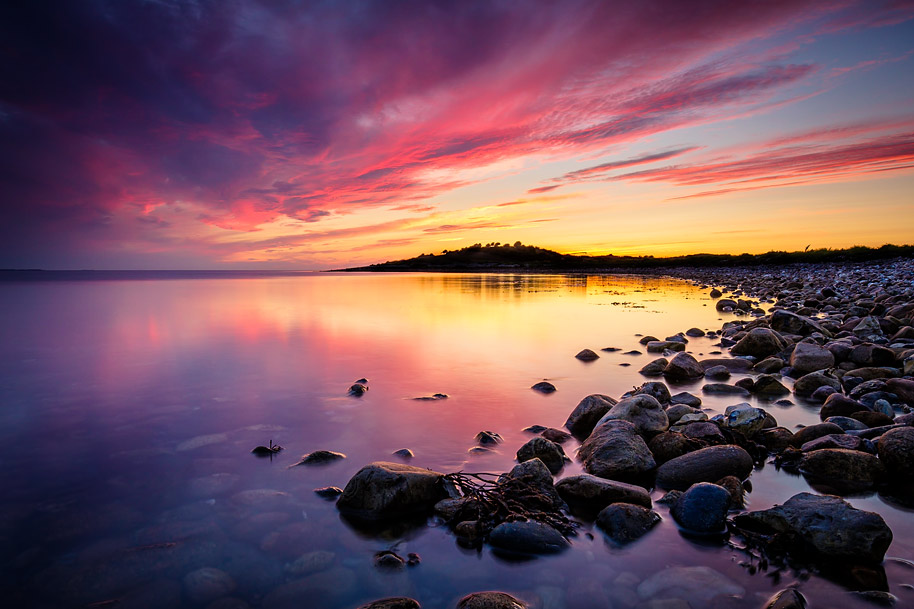Photography: How much manipulation is allowed?

…
Yes, there is manipulation in my photos!
It is no secret that real nature is different than what you can see in photos, not only in mine.
- It is starting with framing the world as I wanted to see it. Sometimes it is not necessary to have a nuclear power plant in a photo. So I will choose the frame wisely without this object.
- Using filters can be heavy manipulation too.
- I also manipulate objects in reality. It is not only cleaning the beach from seaweed. Sometimes I rearrange objects in the way I like it. Most of the photographers are doing it. If you see leaves on a black stone near a floating river be sure this scene is manipulated. Let’s have a look at these rocks I have rearrange for the best look in the right corner:
 Rearranging stones in the right corner the way I like it
Rearranging stones in the right corner the way I like it
- Giving people advices doing things in a special way can be called manipulation too. A sad face cannot be ordered to a smile without looking manipulated.
- And of course retouching is manipulation by nature. Ansel Adams for example was the first photographer having great success with manipulating photos in his darkroom.
Photography is about truth.
So where does truth come from when you keep all these manipulations in mind?
- Photography in reportage style creates truth through showing things that are really happening.
- In art photography truth comes from transporting your personal vision you have while taking your photo.
What do you think, about manipulation in photography?



November 11, 2012 at 20:44
Christof Simon
In my opinion photography and especially landscape photography is art. Art needs the vision of an artist. It’s the creative process that is necessary to create art. It is ok if someone says I don’t like your image because I don’t like your interpretation, it’s not my taste. But it’s not ok decreasing the value of an image only because you know it’s manipulated, whether you took away some rocks or you lightened up some parts of the picture in post-processing.
Or would you blame van Gogh or Monet that they manipulated “reality” and therefore their work is not good or they are no artist?
November 10, 2012 at 20:49
Bernhard
Da lief vorigen Sonntag auf arte ein Beitrag über die ersten Anfänge der Fotografie. So 1850 – 1860. Und was haben die damals gemacht? Manipuliert, dass sich die Balken biegen! 🙂
March 10, 2012 at 07:41
demet
i just realized u got translations of your content in english. i liked your blog totally 😉
February 10, 2011 at 20:47
Erik Kerstenbeck
Hi
All photos are manipulations. The camera manipulates the image, the lens, filters etc. Then the photographer continues with edits and post processing. I guess it comes down to artistic interpretation.
This image was manipulated with a 10mm lens, light and contrast adjustment, white balance and unsharp mask. Is it too much? I don’t think so, but I am certain that many would disagree.
Glass Menagerie: http://t.co/Gdbh1lp
Regards, Erik
Kerstenbeck Photographic Art
February 12, 2011 at 17:25
olaf
@Erik: The photo is fine. Thx for sharing…
February 13, 2011 at 20:56
Sam
Same here: I agree every picture is a manipulation of reality.
So I find it best to manipulate until it looks like I want to see the scene.
I don’t care about my pictures being “unmanipulated”, since I don’t see the point in it. Taking the picture already is a manipulation.
Pingback: OlafBathke
Pingback: Olaf Bathke
February 10, 2011 at 17:53
Peter West
We manipulated just about all of the images in our small Ontario daily newspaper’s black and white darkroom back in the 70s. If we didn’t, most of the images would never have been published. We burned and we held back and we cropped and it was all good.
Today we get HDR images where there are no shadows where shadows should be and it’s called photojournalism. Hum. Not sure I’m okay with this amount of manipulation of the image. Then we get into Photoshopped models and we’re not in Kansas anymore.
When it comes to art, then IMHO it’s a whole new game and the artist does wants needed to do to convey their artistic idea to me.
And as for “photography is truth” I disagree entirely. Photography is the creation of an image by the arrangement of pixels on a screen or sprayed out of printer.
Truth is something entirely different and found elsewhere than the digital darkroom. Goes back to Pilate who asked “what is truth?”
February 10, 2011 at 20:35
olaf
@Peter: Truth is something our audience can feel. What it is? Who knows exactly…!? Thanks for sharing.